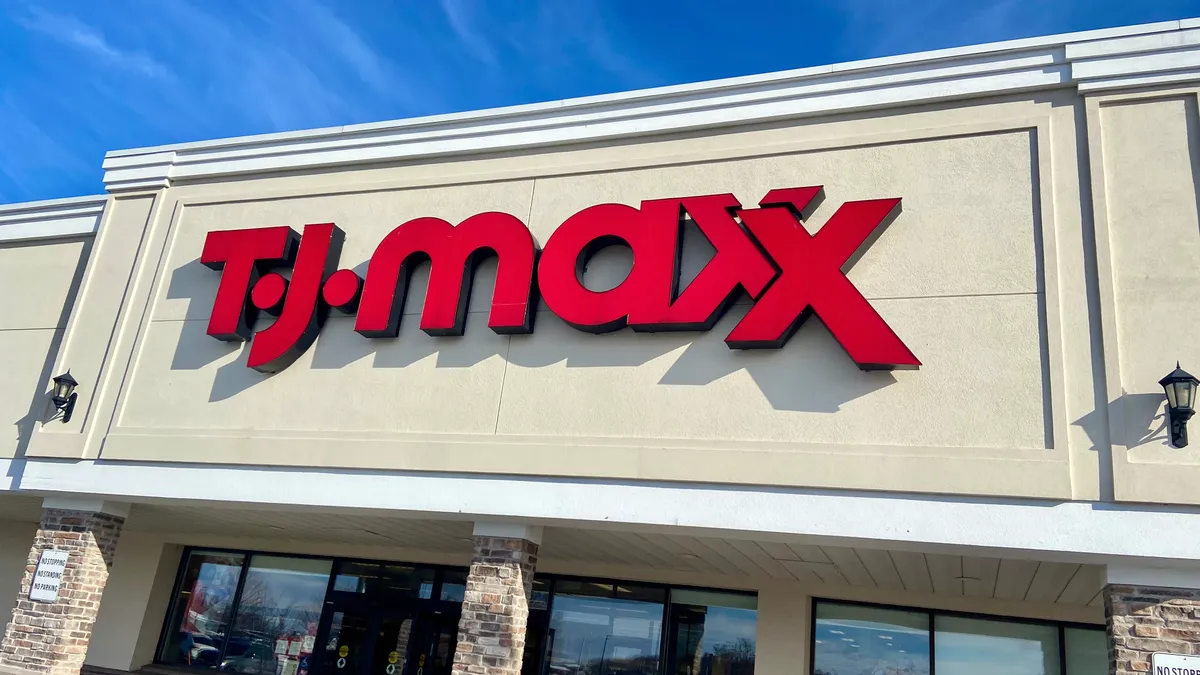Dive Brief:
- TJX believes the possibility of higher tariffs may benefit the business' buying practices, CEO and President Ernie Herrman said on a Nov. 20 earnings call.
- Tariffs could prompt vendors and manufacturers to bring goods in early, which would create a surplus of inventory for TJX to acquire at advantageous prices, said Herrman.
- The CEO told analysts that market "chaos" in certain categories typically leads to an opportunity for TJX.
Dive Insight:
Like many companies, TJX has been tracking potential tariff increases that specifically target China-made goods under the incoming Trump presidential administration. But the discount retailer doesn’t expect its business to be heavily impacted by the possibility.
TJX says that it gains flexibility by not buying inventory so far out in advance. Direct imports also make up a small portion of TJX’s business, and the retailer already started diversifying its sourcing away from China years ago, according to the CEO.
Further, since a bulk of TJX inventory is purchased from other brands, the company lacks “visibility into where those goods are from, nor do we actually want to get involved in that,” said Herrman.
But the CEO noted that it all goes back to the “value gap.” If a brand were to be impacted by tariffs, for instance, and consequently have to raise prices, the SKU price might go up a little. Regardless of the price difference, Herrman said it “will never be an issue” for the company due to TJX's value edge in comparison to other retailers.
“So, while we won't speculate on exactly what will happen with certain items or certain categories, if it does happen, we are set up to ensure that we maintain our value gap between us and the out the door at no matter what those categories are that could get hit with tariffs,” Herrman told analysts.
Several retailers have been preparing for tariff changes, including fashion brand Steve Madden which intends to limit its exposure to China-based sourcing. Meanwhile, Ralph Lauren currently only sources a “single-digit percentage” of its products from China, claiming that its diversified production footprint puts the company in an optimal position.















